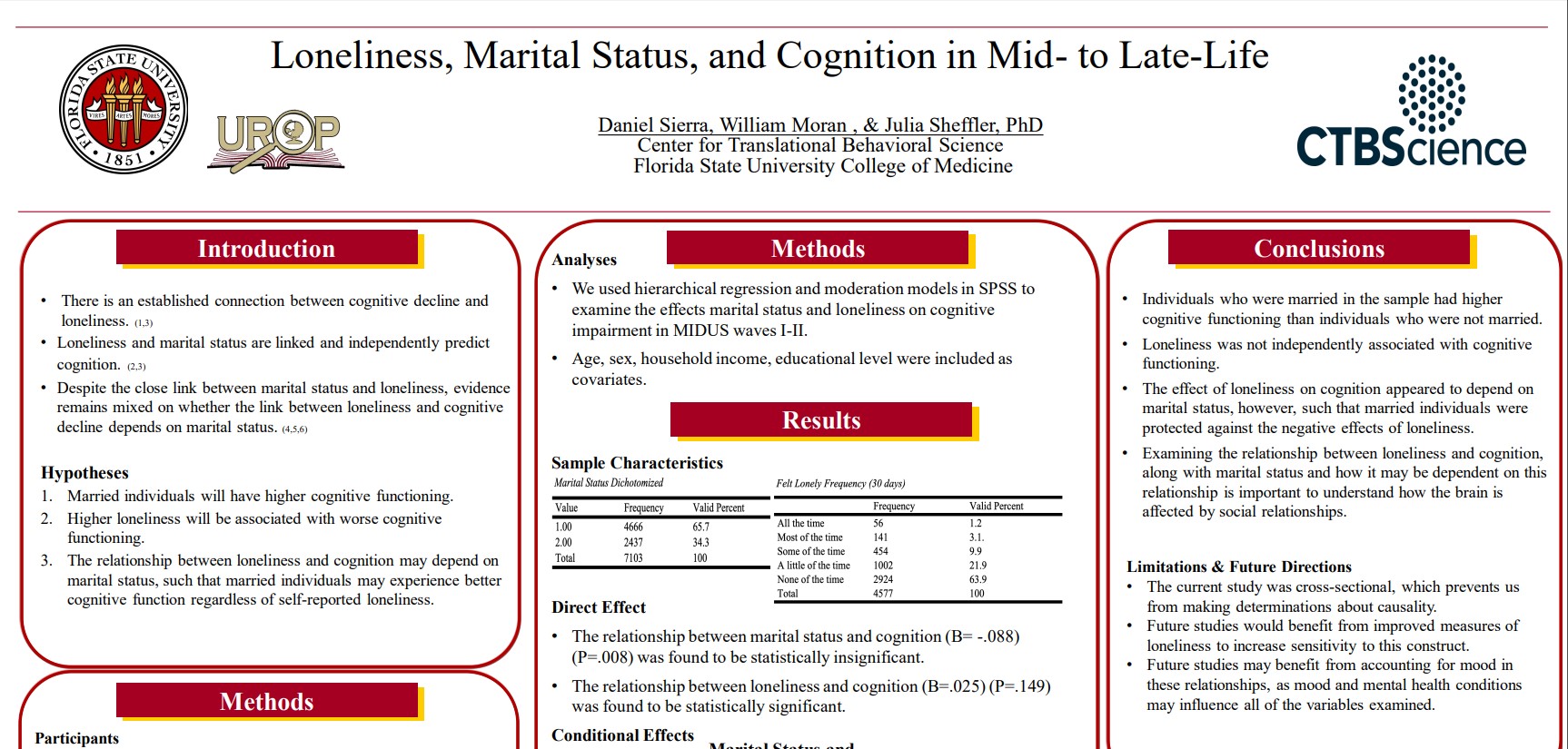Research Symposium
23rd annual Undergraduate Research Symposium, April 6, 2023
William Moran Poster Session 4: 4:00 pm - 5:00 pm/ Poster #224

BIO
I'm from Cape Coral, Florida. I'm very interested in genetics and chemistry. My goal is to conduct biomedical research.
Loneliness, Marital Status, and Cognition in Mid- to Late Life
Authors: William Moran, Dr. Julia ShefflerStudent Major: Biochemistry
Mentor: Dr. Julia Sheffler
Mentor's Department: Department of Behavioral Sciences and Social Medicine Mentor's College: College of Medicine Co-Presenters: Daniel Sierra
Abstract
Background. Cognitive decline, according to the CDC, impacts 1 in 9 adults. Research has demonstrated a link between marital status, loneliness, and cognitive decline. However, further research is needed to understand how loneliness may interact with marital status to influence cognition.
Methods. Data was collected through the MIDUS series, which was a longitudinal study conducted over 1995-2014 (N = 7,108). Participants were English-speaking, non-institutionalized Americans. Age, education level, ethnicity, sex, and income were used as covariates in each analyses. Cognitive functioning was assessed using the Brief Test of Adult Cognition via telephone (BTACT). Data regarding marital status and loneliness was collected through self-reported questionnaires.
Results. We expect to find a positive association between loneliness and cognitive decline, as well as marital status and cognitive decline. We expect that the relationship between loneliness and cognitive decline may depend on marital status, such that those who are unmarried may be more impacted by loneliness and in turn, experience higher risk of cognitive decline.
Conclusions. Examining these relationships may improve our understanding of how the brain is affected by social relationships.
Keywords: Cognition, Loneliness, Marital Status


